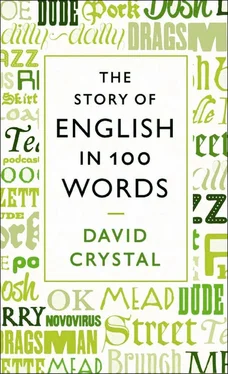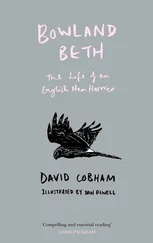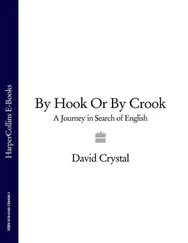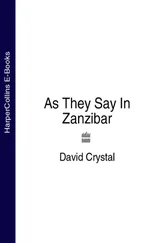Some studies suggest that the public is becoming more relaxed about traditional taboo words, but cunt remains at the top of any list of words that people find most offensive. It is one of a very few words known by their initials. The expression the f-word seems to have been the first, recorded since the 1950s. The c - word came later, in the 1970s. Today, such usages have extended to other kinds of taboo, such as race (the n-word, for nigger ) and mortality (where c-word turns up again, but now standing for cancer ).
Some taboo words, such as bloody ( §47), emerge quite late in the history of English; others, such as cunt , seem to have been there very early on. But nobody knows exactly where this word came from or when it arrived. There’s an Old Norse word kunta with the same meaning, so maybe it came in with the Vikings. It doesn’t appear in Old English and is rare in Middle English, suggesting that it was a sensitive word even then. There are several instances of it being replaced by a less direct form (a euphemism), such as quaint , and other alternatives emerged, such as cunny , quim and the remarkable quoniam (the Latin word for ‘since’), which must have originated as a scholarly joke. In Lichfield there is a street called Quonians , which may well come from this source.
The story of count and countess is suggestive too. These aristocratic titles were brought over from France when the Normans arrived. But although countess was immediately adopted — there are examples recorded from the 12th century — count was not. Instead, the Anglo-Saxon word earl continued in use. The likely explanation is that count was being avoided because its pronunciation reminded people of cunt . The vowel in count would have been short (as shown by the early Old French spelling cunte ). By the 16th century, though, things had changed: count was evidently being pronounced in a sufficiently different way for people to use it without causing a snigger, and the title becomes frequent thereafter. We find Count Orsino , Count Claudio and other Counts in Shakespeare.
On the other hand, the word evidently didn’t have the same taboo force in the early Middle Ages that it has today. It turns up in various medical textbooks of the period, as a routine part of a description of female anatomy. It appears within surnames, such as John Fillecunt and Bele Wydecunthe . And there are some famous street names, such as Gropecuntlane , which suggest that the word was in common parlance. We won’t find such names today. The old street names have long been replaced by more innocent versions. However, if you find yourself walking down a Grope Street or a Grape Street , it may well have once been a prostitution thoroughfare.
It took longer for the word to be used as a term of abuse. There are occasional signs in the 1500s of people using it when they were calling each other names, but the really forceful insulting use ( you cunt! ) isn’t recorded until the early 20th century — first with reference to women, then to men as well — and chiefly in Britain. It’s difficult to be sure when this usage began. Once cunt had achieved really strong taboo force, it became rare in writing, so we don’t have any records. Dictionaries would generally exclude it. And when a few writers did dare to use it, it would usually be printed with a dash or asterisks.
Today, most dictionaries include it. But newspapers still vary in their practice. If a footballer calls a referee a cunt, which seems to happen quite often, we might see all three versions in different papers: c--- , c*** and cunt . Seeing the word in print at all is a major change compared with fifty years ago. But newspapers no longer dictate norms. If you want to see it used some 20 million or so times, all you have to do is call it up on the internet.
 25. Wicked — a radical alteration (13th century)
25. Wicked — a radical alteration (13th century)
When a word changes its meaning, it can sometimes take people by surprise, especially when the new meaning is very different from the old one. In the later decades of the 20th century, parents were taken aback when they heard their children start using wicked as a term of strong praise. In fact there was nothing especially unusual about the development. This wasn’t the first time a word had taken on a meaning that was the opposite of its original sense.
Wicked emerged as an adjective during the 13th century. It seems to have come from the Old English word wicca , ‘wizard’ (and wicce , ‘witch’), and from its earliest uses it had all the associations of evil and malignant supernatural powers. The Wicked One came to be a description of Satan, and any stock evil characters in plays would tend to attract the epithet. Pantomime today continues that tradition, with its Wicked Fairy and Wicked Stepmother .
Before long the word began to broaden its meaning, and was applied to all kinds of bad situations. Any cruel, fierce or vicious being, human or animal, could be called wicked . So could harmful, dangerous or offensive happenings. The air could be described as wicked , if it was foul-smelling; food also, if it was foul-tasting. A difficult road might be called wicked .
Then, towards the end of the 16th century, a lighter tone emerged. Someone might be described as having a wicked tongue or wicked eyes . Children were said to be wicked imps . Here the meaning is ‘mischievous’, ‘sly’ or ‘naughty’, and often the usage was distinctively jocular in tone. Later, people would even use the word to describe themselves in this way, adapting the biblical phrase (from the Book of Isaiah) to say no peace/rest for the wicked!
It was a short step from here to the 20th-century sense of ‘amazing’, ‘splendid’, ‘remarkable’ — a usage which is actually found in American slang as early as the 1920s. It’s by no means alone. Other words which have developed the same set of laudatory senses include sick , mad , insane and crazy . The oddest, to my mind, is horrorshow . This was one of the words invented by Anthony Burgess in his novel A Clockwork Orange . It’s a phonetic rendering of a Russian word meaning ‘splendid’, and that’s how it has entered English slang. If someone were to say that ‘this book was horrorshow’, I’d really be rather pleased.
 26. Wee — a Scottish contribution (14th century)
26. Wee — a Scottish contribution (14th century)
In 1955, Frank Sinatra released an album called In the Wee Small Hours . Its title track — ‘In the Wee Small Hours of the Morning’ — was one of those songs that stay in the mind, and it’s since been recorded by several other vocalists. But the expression wasn’t a modern coinage. It has an ancient Scottish ancestry, and represents an important strand in the history of English.
Wee had travelled a long way by the time it reached the Hollywood recording studios. We first find it in the north of England in the 1300s, in such phrases as a little wee , and it soon moved up into Scotland. It could mean several things — ‘a little child’, ‘a small quantity’ or ‘a short distance or period of time’. The senses were all to do with the ‘amount’ of something. There’s a relationship with the Old English word weigh .
Читать дальше

 25. Wicked — a radical alteration (13th century)
25. Wicked — a radical alteration (13th century) 26. Wee — a Scottish contribution (14th century)
26. Wee — a Scottish contribution (14th century)










